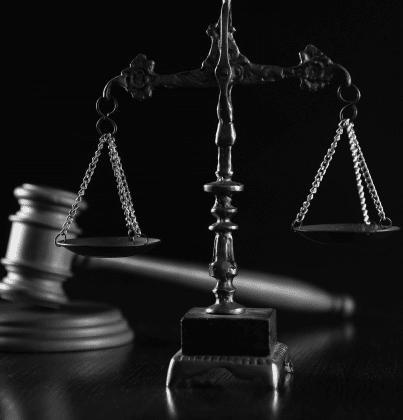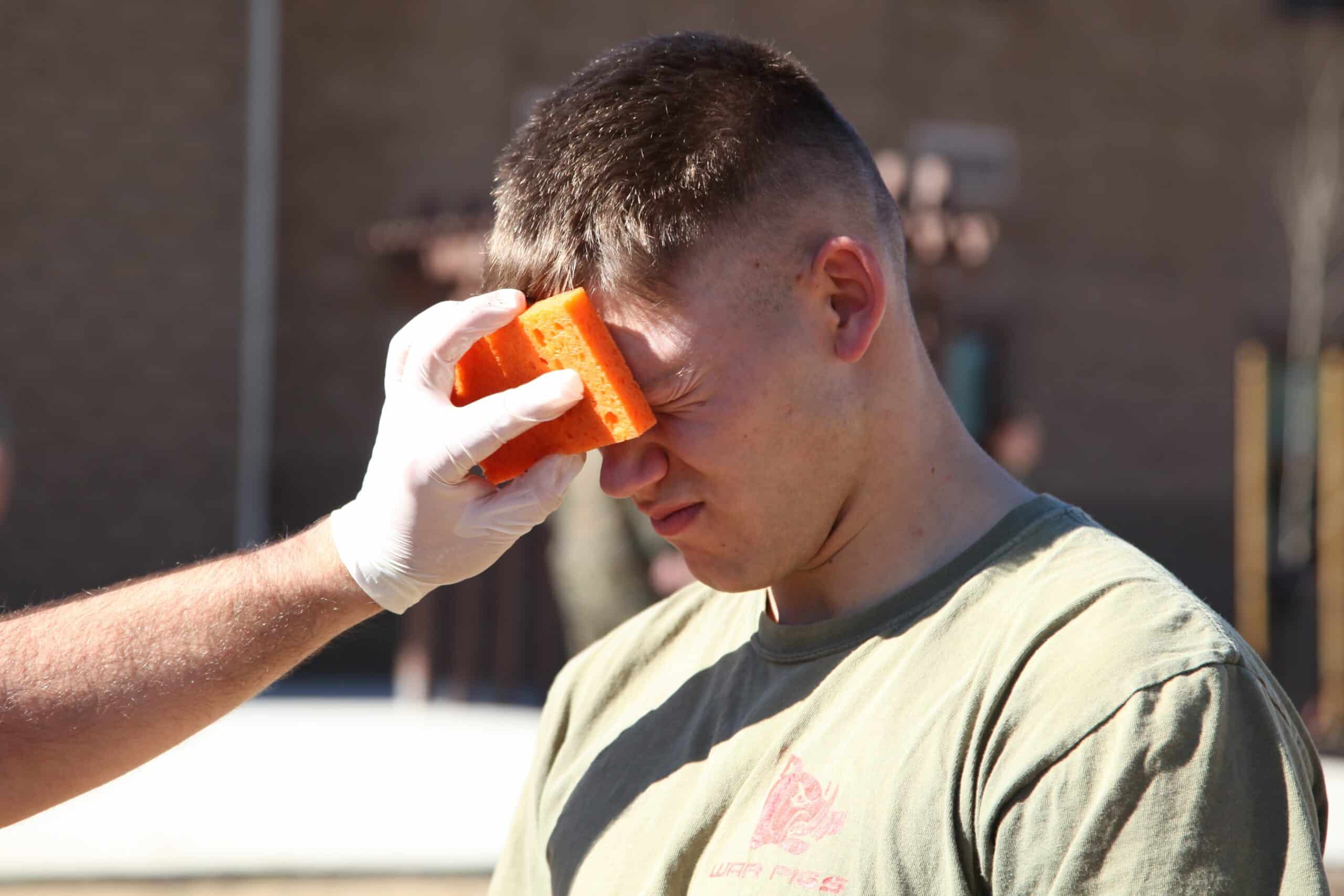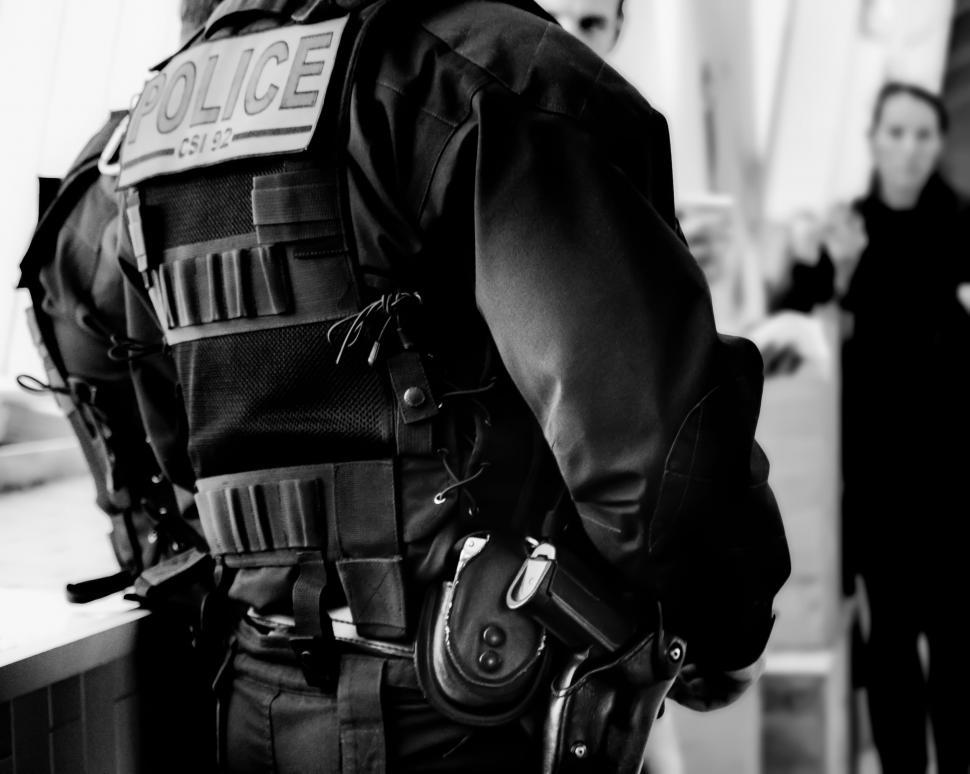What Are My Rights as a Protestor?
Participating in protests is a constitutionally protected exercise of your First Amendment rights. Understanding your legal protections is important to ensure safety. This guide outlines your rights for assembling and the practical steps to take if you face law enforcement or other officials during a protest.
Were you or a loved one a victim of police brutality?
Attorneys that work with Police Brutality Center may be able to assist you.
"*" indicates required fields
Content Last Updated: November 26, 2025
Your Rights
The First Amendment guarantees your right to assemble peaceably and express your views in public forums, including streets, parks, and other areas traditionally open to public expression. This constitutional protection is the foundation for protest rights across the United States.
However, certain legal limits can affect your rights, and states and municipalities may impose regulations on protests. For example, some cities require permits to organize demonstrations in certain public spaces. Local laws may also impose increased penalties for specific actions that can occur during a protest, such as obstructing traffic or interfering with public safety.

Do I Need a Permit?
According to the American Civil Liberties Union, you typically do not need a permit to hold a protest on public property, such as sidewalks and parks, as long as you do not obstruct traffic, use amplified sound, or set up structures. However, larger demonstrations may require a permit, especially if you intend to use park space for organized activities.
In contrast, private property refers to land or buildings owned by individuals or organizations, as opposed to those owned by the government. Protesters do not have an automatic right to gather or demonstrate on private premises without the property owner’s explicit permission.
Remember, freedom of speech and assembly applies to everyone, including counterprotesters. Protesters and counterprotesters may not block access to others’ ability to assemble.
What To Do if You Believe Your Rights Have Been Violated

If you believe someone has violated your civil rights during a protest, take the following steps:
- Document Everything: Record all relevant details, including the names, badge numbers, and descriptions of any officers involved, along with a clear, chronological timeline. Preserve copies of any photos or videos captured during the incident, which can serve as crucial evidence.
- File a Complaint: Submit a formal complaint through the police department’s or agency’s internal affairs or citizen complaint division. You can also file a complaint with the U.S. Department of Justice’s Civil Rights Division.
- Seek Legal Assistance: Consult an experienced civil rights lawyer. A qualified attorney can clarify your legal options, guide you through the complaint process, and help protect your rights effectively.
What To Do if You Are Stopped by Police
When stopped by the police in public, law enforcement must have a reasonable explanation for their suspicion that you either committed or are committing a crime. Here is what to do if you are stopped by the police:
- Stay calm: Even if you believe your rights were violated, remain calm and cooperative. Do not argue or obstruct the police. Keep your hands visible at all times. This protects both your safety and your legal position.
- Ask if you are being detained: You can end the interaction if you are not under arrest. Ask the officer if you are under arrest or are free to go.
- You can refuse consent to a search: You do not have to consent to a search of your person. Calmly tell the police officer you do not consent to a search.
- Right to remain silent: You have the fundamental right to remain silent and do not have to respond to questions without a lawyer present. However, several states have so-called stop-and-identify laws that require you to provide your name to officers if asked.

What Happens if the Police Issue an Order To Disperse the Protest?
According to the ACLU, police are not permitted to break up a gathering unless there is a clear and immediate threat of a riot, disorder, interference with traffic, or other risks to public safety.
If the police issue a dispersal order, they must reasonably allow protesters to comply with it. This includes providing a clear and unobstructed path for protesters to exit and giving them information about how much time they have to disperse.
What To Do if You Are Stopped or Detained for Taking Photographs
Whether photographing, recording, or attending a protest, it is essential to know your legal protections. Here are things to keep in mind if you are stopped or detained for taking photographs in public:
- Stay calm: Remain calm and cooperative.
- You have the right to remain silent: Officers may ask you questions, but you have the right to remain silent. You cannot be arrested solely for refusing to answer.
- Ask if you are free to leave: If the officer says yes, leave calmly. If you are being detained, you have the right to ask what crime you are suspected of committing. Remind the officer that photography is protected under the First Amendment and does not create reasonable suspicion of criminal activity.
- Public vs. private property: When lawfully present in a public space, you may photograph anything in plain view, including federal buildings and police. On private property, however, the owner may establish rules regarding photography or video recording.
- Protection of your photos and videos: Police may not confiscate, demand to view, or delete your photographs or videos without a warrant. They cannot delete your data under any circumstances.
- Video and audio recording: Understanding the difference between visual images and audio recordings is important. Some states have specific regulations regarding the audio part of video recordings due to wiretapping or eavesdropping laws. For instance, in some cases, those recorded must provide their consent for the audio portion of the video.
What To Do if You Are Arrested at a Protest
The following are key things to remember if you are arrested at a protest:
- Right to remain silent: State that you are invoking your right to remain silent. Remember, anything you say can be used against you. Even after arrest, you are not obligated to give a statement or answer any questions.
- Right to know reason for arrest: You have the right to know why you are being arrested.
- Right to request an attorney: You have the right to request an attorney.
- Searches: Police may conduct a pat-down if they suspect you have a weapon, and may search you after an arrest. However, they cannot confiscate or view your photos or videos without a warrant, nor are they permitted to delete your data under any circumstances.
- Phone call: You have the right to make a local phone call to someone who can assist you. If you call your attorney, the police are not permitted to listen to the conversation.
Encountering Military Troops and National Guard Members
The Constitution limits how government employees, including military personnel and National Guard members, can interact with you. Similar to law enforcement officers, military members cannot detain you without reasonable suspicion that you have committed, are committing, or are about to commit a crime.
Here are additional points to keep in mind when encountering military personnel:
- Remain calm and compliant: If you are approached by military personnel, stay calm and do not physically resist or obstruct them. Keep your hands visible at all times.
- Right to remain silent: You are not required to answer questions from government officials, except for traffic, parking, or pedestrian offenses, in which case you must provide your name and address. If you wish to remain silent in other situations, clearly state that. Additional rules may apply if you are not a U.S. citizen.
- Searches: You have the right to refuse consent to a search of your person or belongings. Do not physically obstruct the search, but verbally state that you do not consent to it.
- Reporting misconduct: You can report misconduct by National Guard or Army personnel through the Department of the Army Criminal Investigation Division or the Department of Defense Standards of Conduct Office.
